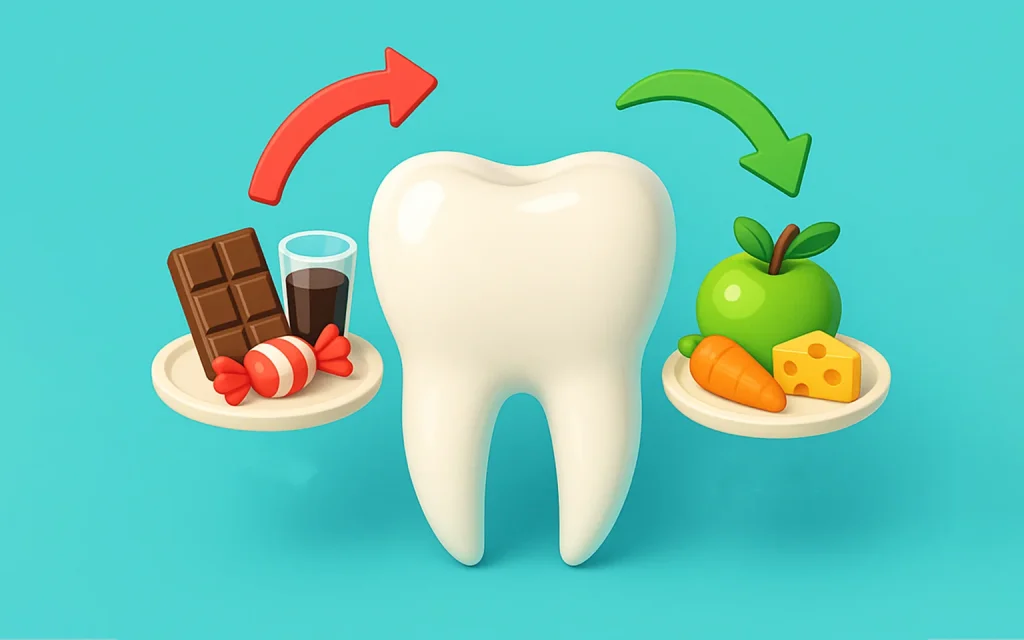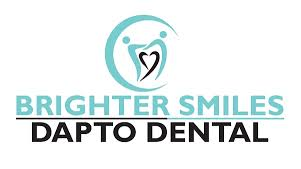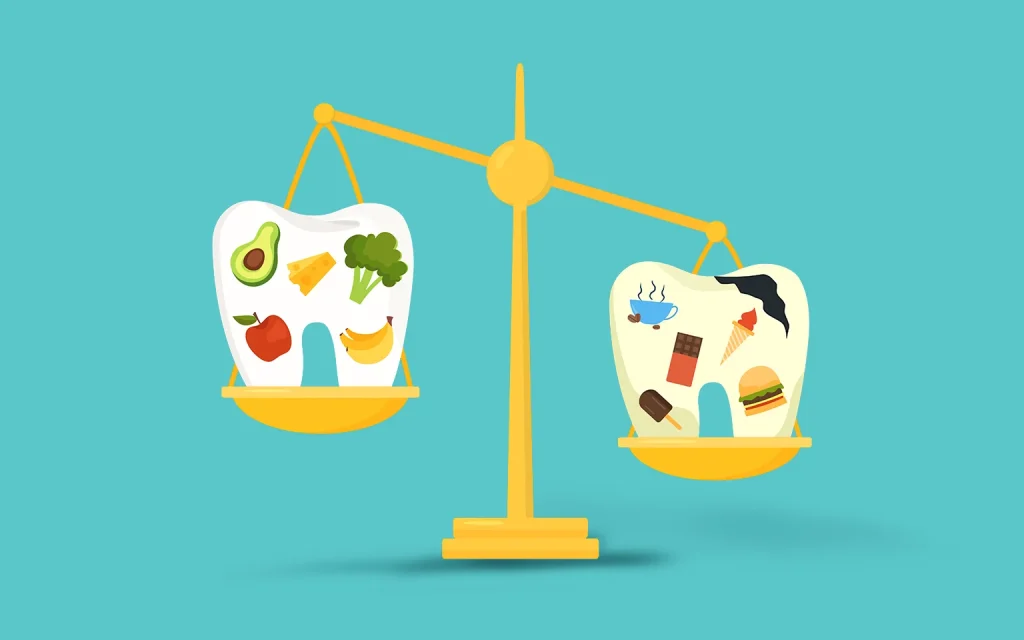The Best and Worst Foods for Your Teeth
When it comes to oral health, what you eat plays just as important a role as how well you brush and floss. At Brighter Smiles Dapto Dental, we encourage patients to be mindful of their diet because certain foods can protect your teeth while others can contribute to decay, enamel erosion, and gum disease. In this blog, we explore the best and worst foods for your teeth so you can make better choices for a healthier, brighter smile.
Why Your Diet Matters for Dental Health
Your mouth is the entry point to your body, and what you consume can either support or harm your oral health. Foods high in sugar and acid can feed harmful bacteria, leading to plaque buildup, cavities, and gum issues. On the other hand, nutrient-rich foods can help strengthen your teeth, gums, and even prevent oral health problems before they begin.

The Best Foods for Your Teeth
1. Crunchy Fruits and Vegetables
Fruits and vegetables like apples, carrots, celery, and cucumbers are natural toothbrushes. Their fibrous texture helps remove food particles and plaque from teeth. Additionally, chewing stimulates saliva production, which is essential for neutralising acids and cleaning the mouth.
Benefits:
- Natural plaque removal
- Increased saliva production
- Rich in vitamins and minerals
2. Dairy Products
Milk, cheese, yoghurt, and other dairy products are rich in calcium and phosphorus, which are key minerals for strong teeth. Cheese also helps neutralise the acids in your mouth, protecting enamel.
Benefits:
- Strengthens tooth enamel
- Supports jawbone health
- Lowers the risk of tooth decay
3. Leafy Greens
Spinach, kale, and other leafy greens are packed with calcium, folic acid, and important vitamins that strengthen teeth and gums. They’re also low in calories, making them a great addition to your meals.
Benefits:
- High in calcium for strong enamel
- Boosts gum health
- Aids in overall oral hygiene
4. Nuts and Seeds
Almonds, walnuts, chia seeds, and flaxseeds are excellent sources of calcium, protein, and healthy fats. They help protect your teeth by reinforcing enamel and reducing inflammation in the gums.
Benefits:
- Provides essential nutrients
- Helps strengthen enamel
- Anti-inflammatory properties
5. Green and Black Tea
These teas contain polyphenols that reduce plaque bacteria and prevent gum inflammation. However, it’s important to drink them without added sugar and rinse your mouth afterward to prevent staining.
Benefits:
- Fights bacteria
- Reduces plaque buildup
- Anti-inflammatory for gums
6. Water
It may seem basic, but water is one of the best beverages for your teeth. It helps wash away food particles and bacteria, keeps the mouth hydrated, and can even strengthen teeth when fluoridated.
Benefits:
- Cleanses the mouth
- Prevents dry mouth
- Strengthens enamel with fluoride
The Worst Foods for Your Teeth
1. Sugary Sweets and Lollies
Sticky and chewy lollies like caramels, toffees, and gummies cling to teeth and feed cavity-causing bacteria. Even hard lollies can crack teeth if bitten and bathe the mouth in sugar as they dissolve.
Risks:
- High sugar content fuels bacteria
- Promotes plaque buildup
- Can cause chipped or cracked teeth
2. Soft Drinks and Energy Drinks
These beverages are acidic and loaded with sugar. Even diet versions contain acid that wears away enamel. Frequent consumption can lead to enamel erosion, cavities, and tooth sensitivity.
Risks:
- High acidity weakens enamel
- Increases cavity risk
- Stains teeth over time
3. Citrus Fruits and Juices
While citrus fruits like oranges, lemons, and grapefruits are packed with vitamin C, their high acidity can erode enamel if consumed excessively. Drinking juice through a straw and rinsing with water afterward can help minimise damage.
Risks:
- Enamel erosion from acidity
- Increased sensitivity
- Can aggravate existing dental issues
4. Dried Fruits
Though they seem healthy, dried fruits like raisins and apricots are sticky and high in sugar. They tend to cling to teeth and provide a perfect environment for bacteria to thrive.
Risks:
- High sugar content
- Sticks to teeth
- Encourages bacterial growth
5. White Bread and Refined Carbs
Starches found in white bread, crackers, and chips break down into sugars in the mouth. These sugars feed bacteria, which produce acid that can erode enamel and lead to decay.
Risks:
- Converts to sugar
Sticks in between teeth
- Feeds harmful bacteria
6. Alcohol
Alcohol reduces saliva production, leading to dry mouth. This can make it easier for bacteria to cause decay and gum disease. Many alcoholic drinks are also acidic and sugary, compounding the issue.
Risks:
- Dry mouth
- Enamel erosion
- Increases gum disease risk
Tips for Smart Eating to Protect Your Smile
- Rinse After Meals: If you eat or drink something sugary or acidic, rinse your mouth with water immediately afterward.
- Wait Before Brushing: After acidic foods, wait at least 30 minutes before brushing to avoid damaging softened enamel.
- Use a Straw: Drinking acidic or sugary beverages through a straw helps reduce contact with your teeth.
- Chew Sugar-Free Gum: This stimulates saliva flow, helping to clean your teeth naturally.
- Snack Smart: Choose tooth-friendly snacks like cheese, apples, or almonds over chips and sweets.
Conclusion
Your diet has a direct impact on your oral health. While it’s okay to enjoy treats occasionally, being mindful of what you eat—and how you eat—can make a big difference in maintaining a healthy, bright smile. At Brighter Smiles Dapto Dental, we’re here to support you with expert advice, professional cleanings, and personalised care.
If you have concerns about how your diet is affecting your teeth, or if you’re due for a dental checkup, don’t hesitate to book an appointment with our friendly team.
📞 Call us at Brighter Smiles Dapto Dental or visit our website to schedule an appointment. Let’s keep your smile at its best, one healthy bite at a time!
🌐 Book online at brightersmilesdaptodental.com.au
📍 Visit us at Brighter Smiles Dapto Dental, 54, Baan Baan St, Dapto, NSW2530.
May 2025


